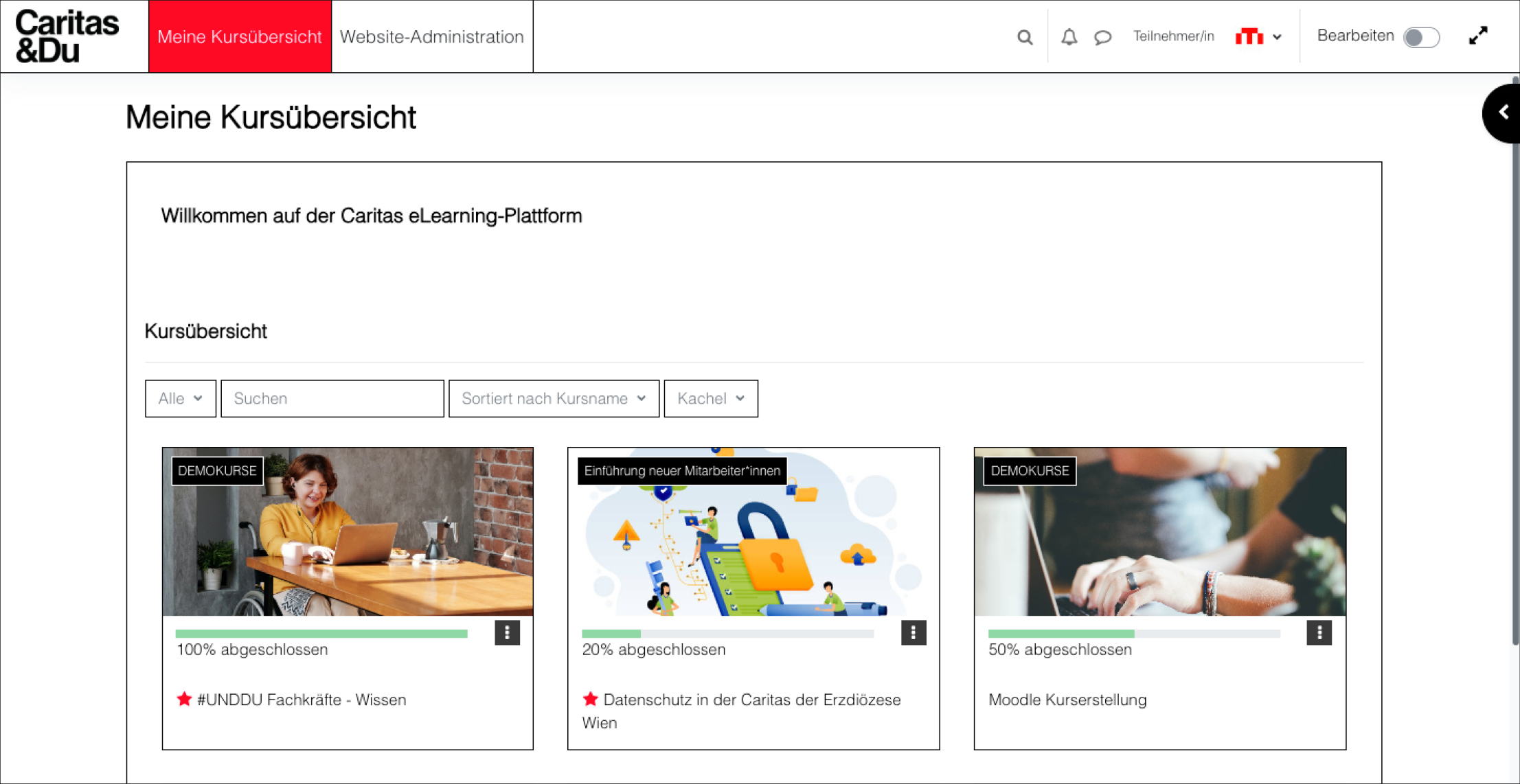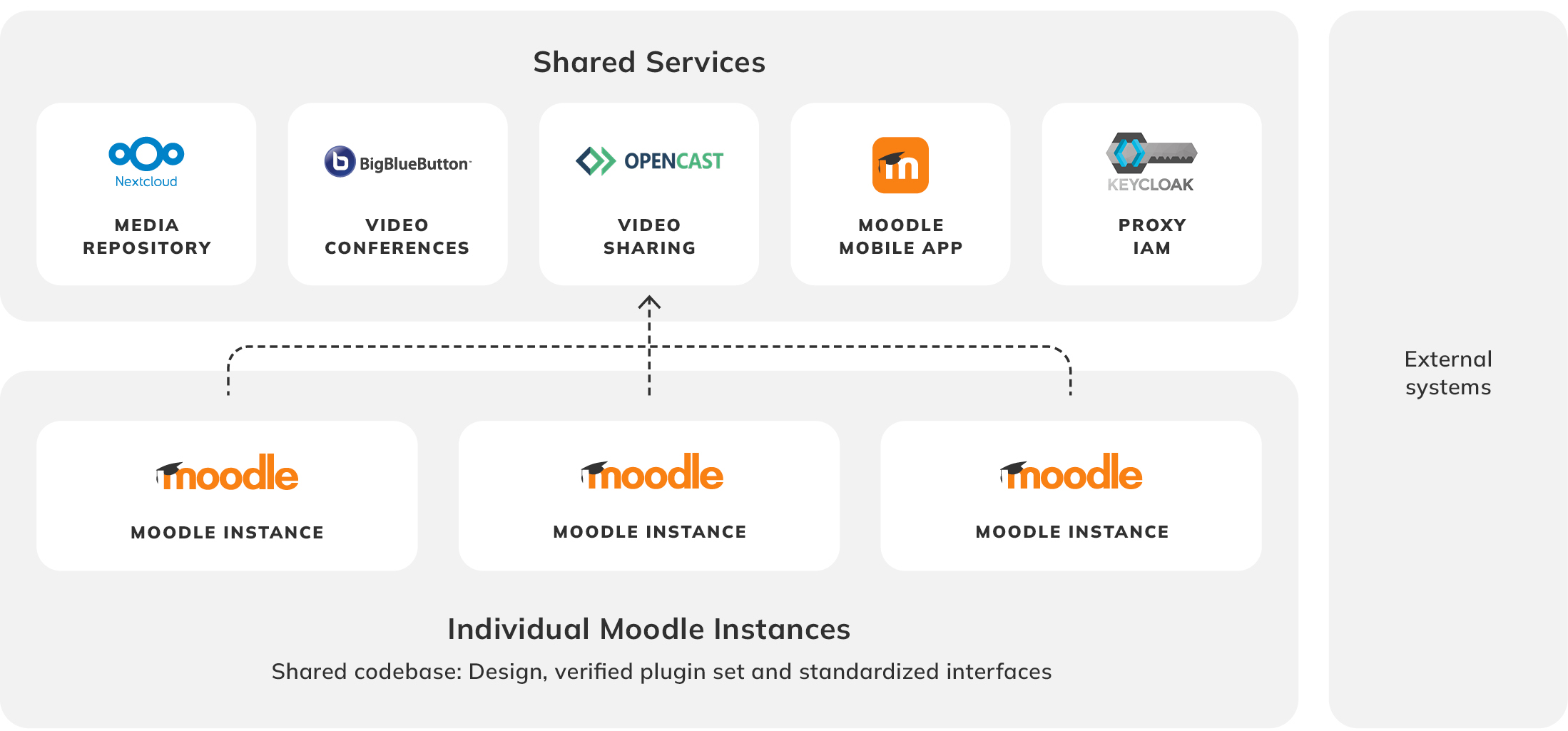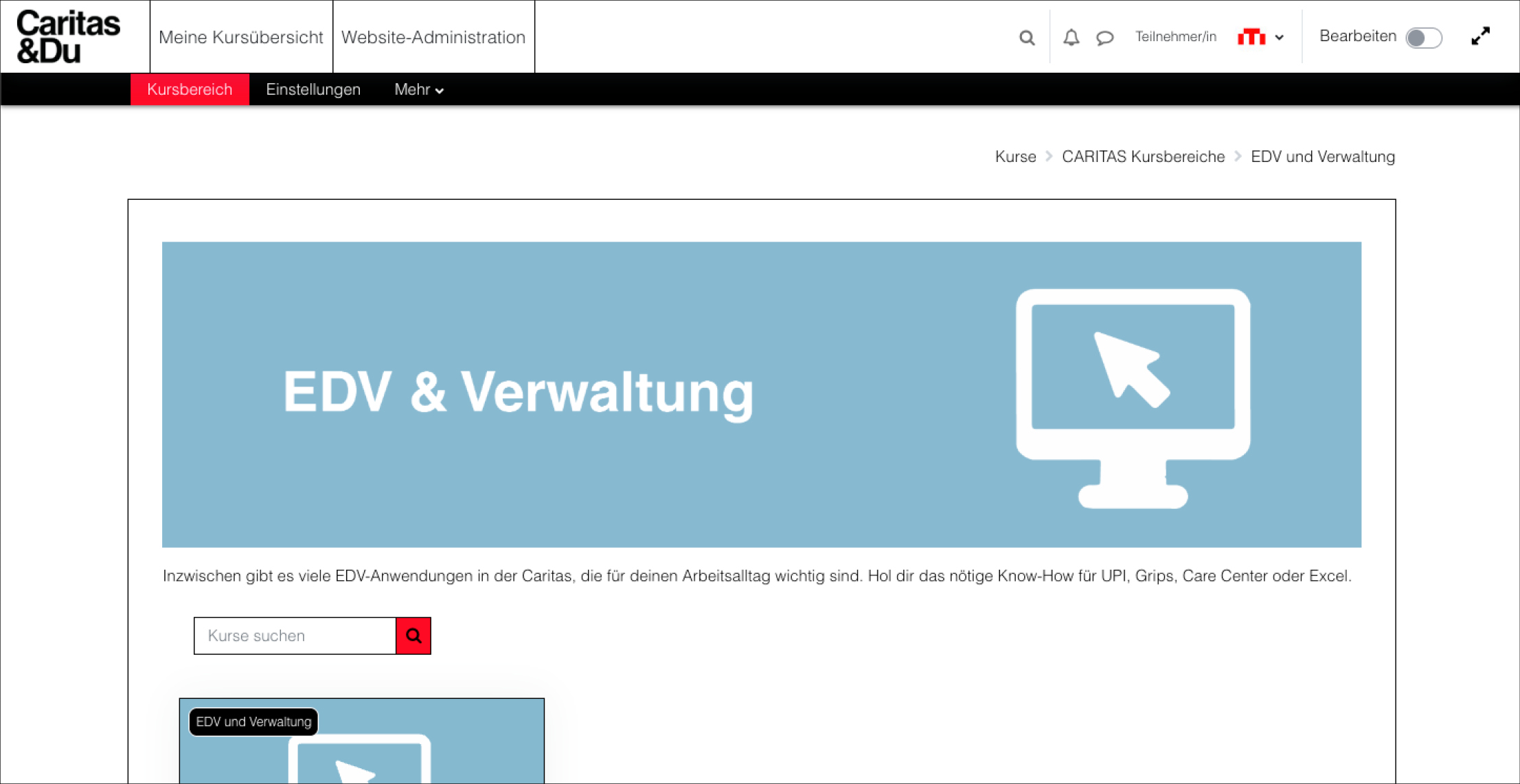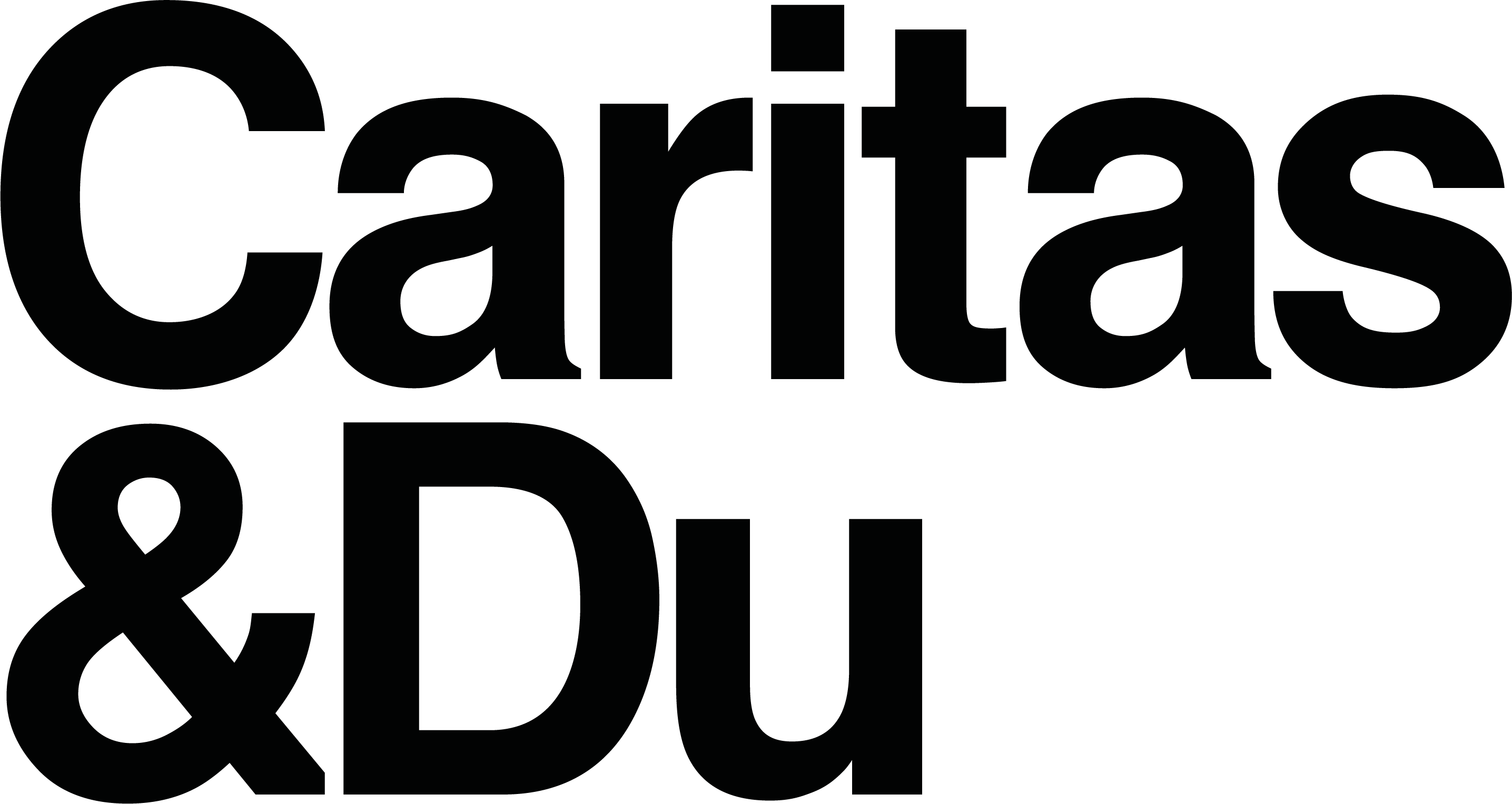As a federally organised institution, Caritas Austria provides a shared Moodle infrastructure via the LearningCloud, tailored to the specific needs of its nine regional organisations. Ten technically identical instances enable a simple setup and the independent design of educational processes – regardless of other organisational units. think modular is responsible for operations, support, and ongoing development.
In cooperation with Caritas Austria (including the Caritas organisations of all Austrian dioceses)
Project timeline Start in 2024 – ongoing
Project page elearning.caritas-wien.at
Our scope of work
Consulting on integration with existing IT infrastructure
Guidance on learning pathways and course design
The Challenge: Establishing a unified digital platform while preserving the organisational autonomy and regional diversity that characterise Caritas.
Caritas Austria operates within a federal structure: nine independent dioceses, along with numerous specialist departments and educational institutions, offer learning opportunities for a wide range of target groups – from nursing and social work to volunteer engagement and internal staff development. This diversity brings with it varying requirements, content types and processes – placing high demands on a shared digital education infrastructure.
To support this complexity in a modern and efficient way, the LearningCloud was developed in cooperation with think modular – digital solutions GmbH: a scalable model based on Moodle that combines decentralised responsibility with centralised maintenance, security and strategic development. The challenge was to design a platform architecture that took into account the federal structure of Caritas, without introducing technical redundancies. Each diocese operates with its own teams, content and pedagogical approaches – yet all require a robust, secure and maintainable technical environment.
The LearningCloud delivers exactly that: 10 technically identical but organisationally independent Moodle instances – serving over 16,000 active users in total.

A dedicated Moodle platform was set up for each diocese, all based on a standardised technical foundation. They share the same Moodle core codebase, a harmonised set of standard plugins, and a unified design. This allows updates, maintenance, security measures, and ongoing development to be managed centrally. An additional Moodle instance is operated for cross-regional activities such as nationwide training or joint programmes.
The platforms are not hosted locally but are delivered entirely as Software-as-a-Service (SaaS) by think modular. Each instance is independent in both legal and organisational terms: user management, course content, and databases remain strictly separated. Cross-instance services and users can be efficiently managed through a central identity management system.
Features such as individual plugins or integrations with external systems can be implemented separately on an instance level, if needed. Where there is wider interest, these enhancements can also be made centrally available across all platforms.

Centralised services – collective advantage.
The LearningCloud is more than just a technical setup – it is a collaborative model for digital education, designed for long-term efficiency, quality, and scalability. At the same time, each diocese retains the ability to shape its own educational processes independently and with flexibility. The shared infrastructure makes it possible to develop core features once and deploy them across multiple instances.
The entire platform landscape is centrally monitored, regularly backed up, and maintained with a strong focus on security. Potential enhancements – such as a central media repository or a video platform based on OpenCast – demonstrate the value of shared innovation within this structure. At the same time, individual integrations with third-party systems for example HR systems or event management solutions, can be implemented independently and with ease – and have already been successfully rolled out in several dioceses as part of this project.
SLA-backed third-level support ensures stable operations. Through regular coordination with the IT and education departments of the participating dioceses, the LearningCloud is being continuously developed at a strategic level.

The LearningCloud: A future-proof model for federated educational organisations.
The LearningCloud developed by Caritas combines the benefits of technical standardisation with the organisational flexibility required – demonstrating how open-source technologies, collaborative implementation, and shared learning can enable a sustainable educational infrastructure.
think modular is responsible for the overall concept, technical operations, support, and further development – working in close cooperation with all participating dioceses. In addition, think modular provides support with integration into existing IT infrastructures, implementation of single sign-on solutions, and both the didactic and technical realisation of specific course scenarios.


